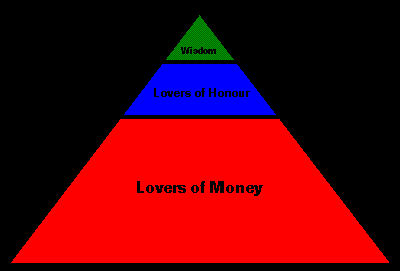[QUOTE="jimkabrhel"]You are reading a definition and taking it at face value without considering its unwritten implications. Please tell me how a government can control social/economics policy or anything else without violence, or the threat of violence. And if you want a definition of "statist" that is not politically biased in favour of statism, then here is a good place to start.Laihendi
These series of posts was not made for that question but it should suffice.
[QUOTE="frannkzappa"]
If you have a specific question my proposed form of government i will answer in more detail.If you want to know what a proper technocratic government will do in a scenario just ask.
coolbeans90
For the virtual entirety of recorded human history, from the inception of agrarian civilizations until the dawn of democracy, the potential for a Utopian technocracy has existed within the hands of those in power of authoritarian regimes. Not only did no technocratic Utopias occur, or even really semi-technocratic civilizations headed by a king, the living conditions endured by the proles at the hands of kings and queens left quite a bit to be desired, to put it lightly. A similar trend remains in China. Under democratic rule, people tend to live much better lives, and living conditions have generally improved more quickly because of the influence people have historically exerted on their own behalf. Despite some conflicts at times between experts and populist movements, it would be nothing short of an untruth to say that the government currently outright disregards experts (they are still pivotal to public policy) or that scientific advancement doesn't happen. Modern democracies have done more to support science than any other form of government by a pretty substantial margin. Now, the question I have for you is:
Given the complete lack of inherent interest by authoritarian regimes for anything other than selfish endeavors (an inherent incentive in such a system, mind you), their tendency to disregard human well-being for those aforementioned personal gains, and no particular interest in the long-term advancement of science, why exactly do you think that such a system implemented now, even if founded by well-meaning individuals, wouldn't degrade into yet another dystopian clusterfvck?
Ah, there is the rub is it not? Well in a Proper technate those in power would not benefit from a dystopia. So the question is how do we do that. well the the answer lies in the modern price system. since the the dawn of man economy has been scarcity based and thus oligarchies have flourished. oligarchies by nature abuse the "common man" (for lack of a better word) and so to combat this democracies were formed. however the nature of the "common man" caused the failures of democracies, the unorganized group is to easily manipulated and duped, and thus democracies are plagued by corruption and incompetence just like the oligarchies they fought to eliminate. So historically you see a cycle of tyrannies being overthrown and popular governments replacing them and then failing only to be replaced by another tyrant. However we of the modern age are in a unique position to break this cycle. For we have ability to move away from scarcity economics and thus away from oligarchies and democracies. We have machines that can eliminate human labour and produce limitless goods with near zero human labour.
Now, you may ask "doesn't that empower the oligarchy even more? for machines and automated production hurts the working man, taking their lively hood and worth and empowering the elite and the rich." Well you would be correct in asking this...under the price system at least. If we (I'm talking about the US now for ease of example) utilized the resources of the north American Continent we could provide an infinite amount of consumer goods with zero human labour. The oligarchy would become powerless for what could they offer to placate the "common man"?
Now you may ask yet another question "why would the oligarchy let this happen?". Well I in no way suggest they would just give up their power, but they don't have any choice in the matter. For the price system as we know it is unstable and bound to fail, when it will fail is the question. And when the price system does collapse the Technocrats will be there to pick up the ashes, hopefully by that time having educated enough of the populace about the merits of technocracy. Now its safe to say this can't happen anywhere most states will likely not survive the collapse and the inevitable warfare and economic destruction that will ensue. At the moment it seems only three countries could possibly make the transition: the USA, Israel and China.


Log in to comment